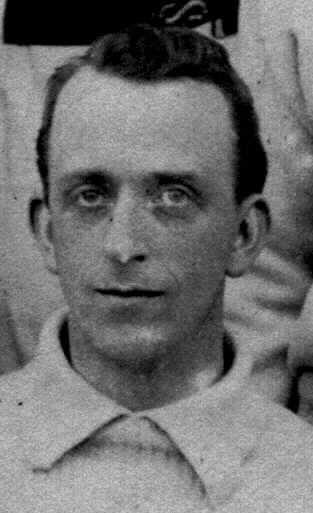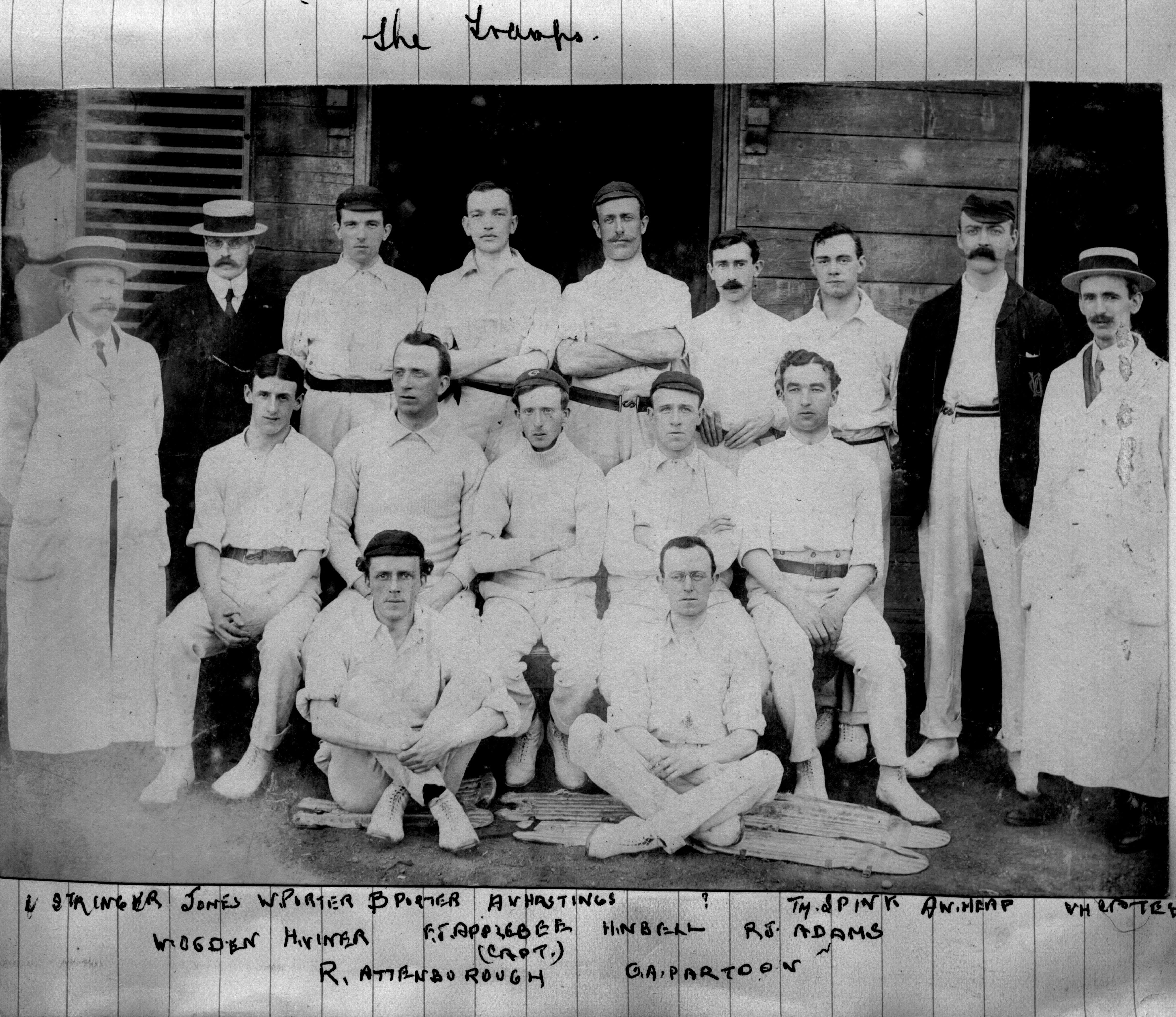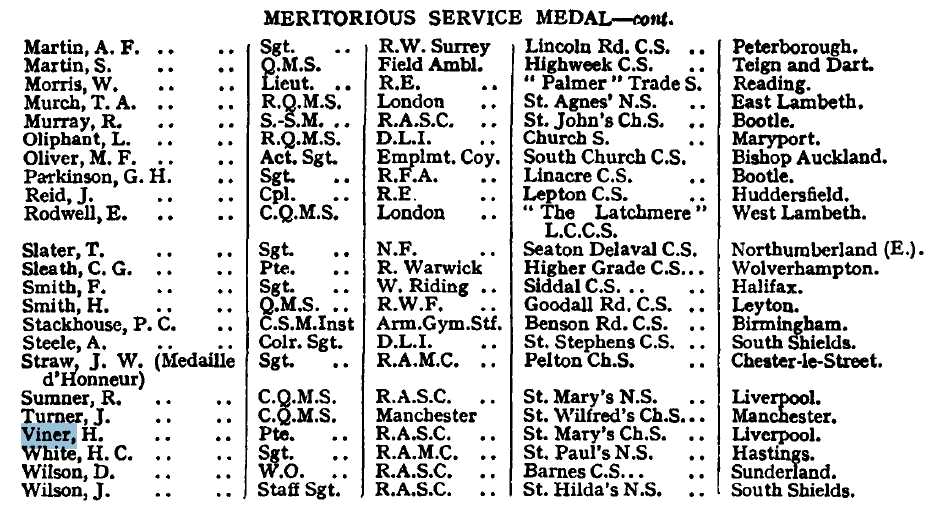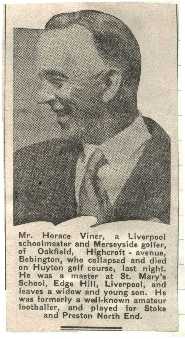
An Alien at War
Horace Viner
Written and researched by David Bohl, with the kind help and documents supplied by World War 1 historians worldwide.

Horace Viner was an active member of the Aliens but there is no record of him playing rugby. The Committee Minutes record him proposing a new member proving his status within the Rugby fraternity.


He played cricket for Clubmoor and "The Tramps" with familiar Aliens such as F.J.Applebee, H.N.Bell, and R.J.Adams.
Born around 1881 in Dudley, Warwickshire his family moved from Northwich (1881) to Liverpool (1891).
He became Schoolmaster at St Mary's Church School, West Derby and was living at 24 Greenfield Road, Old Swan.


Medal Roll
On
his marriage notice in the Echo
it mentions he was "Liverpool Scottish and Divisional Headquarters".
His return home may have been due to sickness or injury after the Somme
battle.
In August 1916 1/10th King's Liverpool were 166 Infantry Brigade of 55
Division, and their HQ was at Citadel, moving at the
end of
the month to Belle Vue Farm (outside Albert).
New Year Award 1917 - Meritorious Service Medal


The British Army's medal was instituted in 1845, to recognise meritorious service by non-commissioned officers, and recipients were also granted an annuity. During 1916–1919, army NCOs could be awarded the medal immediately for meritorious service in the field.
To be awarded the MSM, an individual must have "good, faithful, valuable and meritorious service, with conduct judged to be irreproachable throughout".
Narrative from The Long, Long Trail (The British Army in the Great War)
http://www.longlongtrail.co.uk/
This section of the Long, Long Trail will be helpful for anyone wishing to find out about the history of the units of the Army Service Corps. Note that the ASC is the same as the RASC: it received the Royal prefix in late 1918.
The unsung heroes of the British army in the Great War - the ASC, Ally
Sloper's Cavalry.
Soldiers can not fight without food, equipment and ammunition. In the
Great War, the vast majority of this tonnage, supplying a vast army on
many fronts, was supplied from Britain. Using horsed and motor
vehicles, railways and waterways, the ASC performed prodigious feats of
logistics and were one of the great strengths of organisation by which
the war was won.
Who or what was
Ally Sloper?At peak, the ASC numbered an incredible 10,547 officers and 315,334 men. In addition were tens of thousands of Indian, Egyptian, Chinese and other native labourers, carriers and stores men, under orders of the ASC. Yet this vast, sprawling organisation - so vital to enabling the army to fight - merits just four mentions in the Official History of the war.
The ASC was organised into Companies, each fulfilling a specific role. Some were under orders of or attached to the Divisions of the army; the rest were under direct orders of the higher formations of Corps, Army or the GHQ of the army in each theatre of war.
1920 National Union of Teachers Listing

|
|
|
|
Army Service Corps Cap Badge |
|
|
|
|
Horace Viner passed away in 1935 in Prescot.

Pte. Horace Viner MSM
(1878-1935)
Appendix - Army Service Corps -
http://www.longlongtrail.co.uk/army/regiments-and-corps/the-army-service-corps-in-the-first-world-war/All Aliens RFC, Sefton RUFC photographs, programmes and memorabilia Copyright © 2012 Sefton RUFC